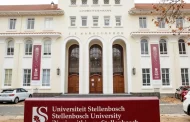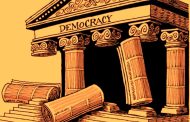As is always the case and without being chauvinistic there, Nigeria tends to flash the signal or sound the alarm. On February 9th, 2018, it did so when an event on democracy turned into a clash on the utility of Political Science or otherwise in Africa. It got so hot that Prof Attahiru Jega who chaired the occasion wondered if a full session on that crease would not be the only way to exhaust the issue. Perhaps lost in the politics of the People’s Redemption Party, (PRP), he has not been able to come back to pushing for that mother of all sessions.
The Nigerian background gives verve to the piece reproduced from University World News below which suggests that Political Science might have to do something before the view that it is useless becomes the consensus. The last sentence of this piece credited to Ngugi Wa Thiongo makes it even more frightening, given its correspondence with those of Professor Ibrahim Abdullah of Fourah Bay College, Sierra Leone at the 2018 session where he said, inter alia, “Political Science is actually a useless discipline. Let’s forget about Political Science”.
Intervention does not think he meant ‘useless’ in a literary sense. Nevertheless, an opinion appears to be forming. Can we put more methodology experts, icons in political theory and grandmasters in International Relations (or by its preferred new name of ‘Global IR’) to work quickly enough?.
By Wachira Kigotho
In his book, African Religions in Western Scholarship, published in 1970 in Nairobi by the East African Literature Bureau, the late Ugandan scholar Okot p’Bitek faulted departments of social anthropology at universities in Africa as camping grounds for Western anthropologists who perpetuated colonial myths of African cultures as primitive.

Prof, what about the mother of all sessions to conclude the debate which has come back again?
Today, a group of academics appears to be walking independently in the footsteps of p’Bitek, by raising hard questions about the failure of political science departments in African universities to become forces that can contribute to democratic transitions on the continent.
In a study, ‘The unofficial curriculum is where the real teaching takes place: Faculty experiences of decolonising the curriculum in Africa’, published earlier in 2023 in the journal Higher Education, Dr Liisa Laakso, a senior researcher at The Nordic Africa Institute and Dr Kajsa Hallberg Adu, a researcher at the KTH Royal Institute of Technology in Sweden, explored the role of political science in decolonising the curriculum in several African countries.
The researchers interviewed 26 political science academics currently teaching at universities in Botswana, Ghana, Kenya and Zimbabwe and their main objective was to establish what is being studied and taught about African political systems, African political thinkers, resources of political science, as well as employment opportunities for graduates in political science.
According to Laakso, the ‘Rhodes Must Fall’ student uprising in 2015 in South Africa created a concept for seeking social justice in higher education and they wanted to find out how curricula reforms and knowledge production systems were taking shape elsewhere in Africa.
In that context, Botswana, Ghana, Kenya, and Zimbabwe were selected on the basis of being united by their British colonial heritage and academic traditions that included English as the language of instruction at universities, but diverged in their political developments which was necessary in the study of political science as a discipline in higher education.
“Together, the four countries can shed light on a variety of challenges inherent in decolonisation and our aim was to find generalisations applicable to the whole continent,” said Laakso.
The issue is that, whereas Botswana is dominated by one party, it is one of the most stable democracies in Africa while Ghana’s post-independence democratic rule was interspersed with military until 1992 and Kenya’s with a market-oriented one-party system until 1991.
“In turn, Zimbabwe had implemented a formal multiparty system already under Rhodesian white minority rule and, after independence, under an ideologically socialist and more recently market-oriented authoritarian rule,” stated the researchers as they outlined some differences between the countries studied.
‘About us, not for us’
One key finding in all four countries was that scholars regarded addressing colonialism and social justice in the university curricula as important.
But what could have irked p’Bitek if he were still alive was that courses like political theory were still anchored in Western traditional political philosophy and lacked applied local research.
Researchers were surprised that political science departments in the universities investigated did not have course units on Nkrumah, Nyerere, Sankara or Mandela.
“A professor in Botswana recalled that an external reviewer of their curriculum had found it to be too Eurocentric and all faculty agreed that there had been very little change,” stated the study.
The reviewer reported that “90% of literature are books by North American and British authors and, what makes me sad is that they are writing about us, not for us”. He continued: “They are writing about us for their own audience and yet we have our own people who can write about us for us.”
Further, a lecturer in Ghana is reported to have asked his students to identify 20 top-cited political scientists in their universities or home countries and, according to Laakso and Adu, the list cited no African political scientists, African universities, nor any country in Africa. The list contained only political scientists from leading universities in Western Europe, Canada and the United States.
Another Ghanaian lecturer is reported to have admitted that they had no course on Nkrumah, even though they were in a political science department and Nkrumah had contributed to political developments both in Ghana and in Africa.

The most solid evidence that Nigeria has been on this question of the responsibility of Political and other sciences for long. This is a 1980 journal from Nigeria. Over to NPSA
The ‘hidden’ curriculum
But, whereas a lecturer in Botswana said lecturers had been teaching the same curriculum for years, a Kenyan interviewee described a hidden curriculum in political science.
“We usually have what we call the official curriculum and the unofficial part of it, as a lot of decolonisation takes place at the unofficial curriculum level, which is where the real teaching takes place,” said the lecturer.
In his explanation, he said: “It is not something very explicit, but you will not see it in the course outline, as that academic exposition, most of it, takes place in the classroom”
The aspect of developing a hidden political science curriculum in Kenya goes back to the 1970s when the department of political science at the University of Nairobi was renamed the department of government and public administration.
“The impression was that the department was training civil servants that will hold positions in government but not teaching some radical political revolutionary theories,” said the lecturer.
Similarly, in Zimbabwe, the discipline of political science was renamed ‘administration’, in order to make it relevant to an independent Zimbabwe under Robert Mugabe, said another lecturer.
Even in Botswana, a country that is considered a bedrock of democracy in Africa, in the 1990s, a combination of political science and sociology was not offered for fear of radical opposition politics, claimed one political scientist who was interviewed.
What is decolonisation?
But it appears that African political scientists continue to be divided about what decolonisation means, or what it is all about. Njoki Wamai, an assistant professor of politics and international relations at the United States International University-Africa in Nairobi, Kenya, said the discussion of decolonisation is Western philosophical thought, a patronising attitude and a Eurocentric standpoint.
According to Wamai, Africa had been decolonising right from independence and in this context, post-2015 decolonial debates have raised little enthusiasm in some universities in the continent.
But it cannot be ruled out that the development of decolonisation as a theoretical concept in political science in most countries in Africa is being lost as scholars in the discipline try to contend with demands of quality, relevance, and marketisation of their teaching to students.
Laakso and Adu found that political science lecturers in those four countries, as their counterparts in other social sciences and humanities, are under pressure to show internationally peer-reviewed excellence in terms of producing high-quality journal publications.
The lecturers also continue to worry about how to make their teaching attractive to the students and they are also concerned about the employability of students, as the public sector that used to absorb political science graduates had been shrinking over the decades.
Commenting on the lack of locally produced textbooks on the discipline, the lecturers often cited high teaching loads, large classes, unavailable national funding for research and volatile international funding that have constrained the ability of scholars to concentrate on research.
“Others complained that they have been unable to transform their research into high-impact publications or textbooks,” stated the study.
But, what emerges from the study is that political science teaching in universities in Africa and, more so in countries in Sub-Saharan Africa, cannot abdicate the responsibility of analysing in academic theatres the colonial legacy of military coups, as well as economic and cultural dependency.
In this context, political scientists in African universities are yet to produce quantity and quality research publications and books on conditions that give rise to many dictatorial and undemocratic regimes in Sub-Saharan Africa, or the roots of extremist groups such as Boko Haram in Nigeria, Al-Shabaab in the Horn of Africa and affiliates of al-Queda and Islamic State.
African political science students are still waiting for well-researched political books by local political scientists on the political agenda of brutal characters like Idi Amin of Uganda, Jean-Bedel Bokassa of the Central Africa Republic and Mengistu Haile-Mariam of Ethiopia that clung to power for so long in their countries, killed many people and eventually escaped justice.
As Ngugi wa Thiong’o the Kenyan novelist and professor of literature would say, political science departments in African universities are on the crux and the onus is on them to answer the question: Which way Africa?



























